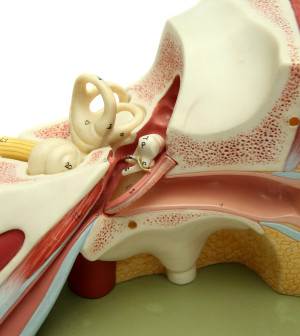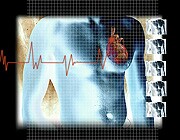- The Best Time of Day to Drink Bone Broth to Maximize Health Benefits
- 8 Ways to Increase Dopamine Naturally
- 7 Best Breads for Maintaining Stable Blood Sugar
- Gelatin vs. Collagen: Which is Best for Skin, Nails, and Joints?
- The Long-Term Effects of Daily Turmeric Supplements on Liver Health
- Could Your Grocery Store Meat Be Causing Recurring UTIs?
- Are You Making This Expensive Thermostat Error This Winter?
- Recognizing the Signs of Hypothyroidism
- 10 Strategies to Overcome Insomnia
- Could Artificial Sweeteners Be Aging the Brain Faster?
Reports of Chest Pain Down For Whites, But Not Blacks


Older Americans and whites reported less chest pain or discomfort (angina) in the past two decades, but there was no such drop among blacks, a new study shows.
Angina is often the first sign of a heart problem or coronary heart disease, the researchers noted. It occurs when the heart doesn’t get enough oxygen-rich blood.
“People often don’t know that they have heart disease until it’s too late,” study author Julie Will, a senior epidemiologist at the U.S. Centers for Disease Control and Prevention, said in a news release. “Angina serves as a warning to both the patient and the doctor that a person may have underlying heart disease.”
Their analysis of national data from 1988 to 2012 found that the rates for whites aged 40 and older who reported angina fell by about one-third between 2001 and 2012, and fell by half between 1988 and 2012.
There was no change in the rate among blacks, according to the study released online May 20 in the journal Circulation: Cardiovascular Quality and Outcomes.
The findings suggest that greater effort may be needed to control high blood pressure, diabetes and smoking among blacks, said Will.
There wasn’t enough data on Hispanics and other minority groups to reveal if there were similar trends in chest pain in those groups.
The rates for women aged 65 and older who reported angina fell by nearly half over a little more than a decade, and by almost 60 percent during nearly 25 years of follow-up. The rates for men aged 65 and older dropped by more than 40 percent between the late 80s and 2012.
The findings from this study are in line with previous research that found fewer hospitalizations and emergency department visits for chest pain between 1995 and 2010. However, it’s not clear if the decline in older adults and whites is due to better heart health or if people aren’t reporting the problem to their physicians as often.
More information
The U.S. National Heart, Lung, and Blood Institute has more about angina.
Source: HealthDay
Copyright © 2026 HealthDay. All rights reserved.










